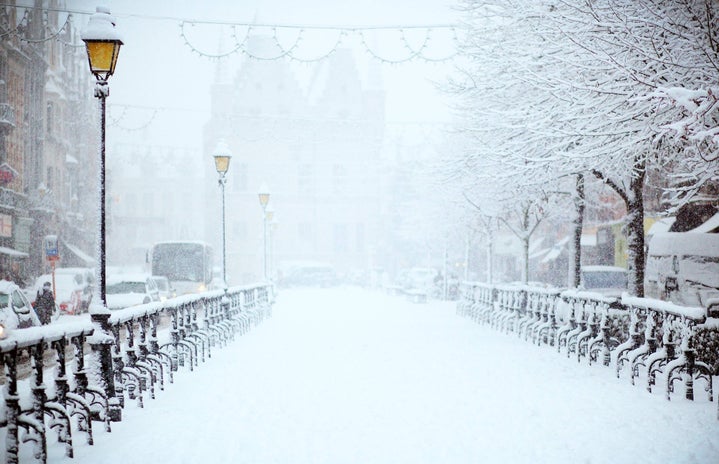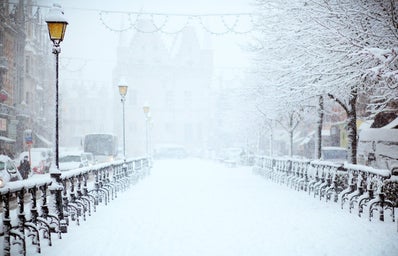Before I begin, I must address the fact that this piece carries a critical lens on Republicans, but it is not a form of political agitation. The following is simply based on my own experiences.
Power plants shut down, water pipes froze and burst. Streets and homes were flooded. People had to flush their toilets with water from ponds and melt snow for cooking and washing dishes and clothes. Without electricity, people resorted to burning wood in antiquated fireplaces, which led to house fires. Others had to warm up in their cars, which led to carbon monoxide poisoning. In many places where the taps were back on, water had to be boiled in fear of contaminants and disease. Thousands without water lined up outside water distribution sites.
Believe it or not, this was America. This was the Texas I lived through from February 13th to 17th during Winter Storm Uri. The Texas I will never forget.
Thanks largely to 200 years of hell-bent consumption of fossil fuels, our world is changing rapidly and is poorly equipped to handle changes that come with an unpredictable climate. Exhibit A: Winter Storm Uri. Gas plants and pipelines that power the grid were not built to withstand the cold. Why? Because it’s hot in the South and nobody imagined it would be any different. But climate change disrupts things in dangerous and unpredictable ways. When catastrophic hurricanes hit, sea walls are overwhelmed. This storm is proof that climate change is not a hoax perpetrated by the far-left. It’s real. It’s here. It’s out for blood and we should never forget.
No matter how much human suffering it causes, Republicans are going to find a way to exploit the event as evidence to keep burning fossil fuels and ignore climate scientists. “This shows how the Green New Deal would be a deadly deal for the United States of America,” Texas Governor Abbott said to host Sean Hannity. “Our wind and our solar shut down, and they were collectively more than 10 percent of our power grid, and that thrust Texas into a situation where it was lacking power on a statewide basis. … It just shows that fossil fuel is necessary.” Abbot decided to exploit misery and pain as a political message. The “Texas fossil fuel mafia” was not about to let facts get in the way of trashing clean energy. In an attempt to shift responsibility from himself, Abbot failed to mention how he had neglected to winterize the power plants in order to better withstand extreme winter temperatures and made the decision to operate in isolation from other grids in the United States. Texas Republicans prioritized the free market (neoliberalism). They put their selfish interests over the choice that would have saved millions of people from all this suffering. Abbot—and other Texan representatives—show how the reckless actions of leaders can endanger people they were sworn to protect. We need to remember this disaster and unnecessary pain in order to pay better attention to who we place in power.
Thanks in part to that free-market, 4.5 million people of the Lone Star State were left cold, thirsty, hungry, homeless, and dead. Among the other delightful side effects that roared in with the lousy weather, African-American, Latino, and low-income communities bore the heaviest weight of the power outages. Areas like Highland park or Downtown Dallas, coincidentally those with higher class privilege and predominantly white residents, remained with power throughout the storm—which is not surprising in Texas, because, you know, freedom! Let’s not forget the relationship between having class privilege and not losing access to electricity during the storm. The “rolling” outages weren’t rolled in the affluent neighborhoods, while other “unnecessary” parts of the city remained without power for three days and without water for about a week. I saw this disparity firsthand as I fled from the darkened Fort Worth to the well-lit Downtown Dallas in search of food, hot water… basic human necessities. So continues the recurring theme: in the United States, those with less have even less when disaster strikes.
If you would like to write for Her Campus Mount Holyoke, or if you have any questions or comments for us, please email hc.mtholyoke@hercampus.com.


